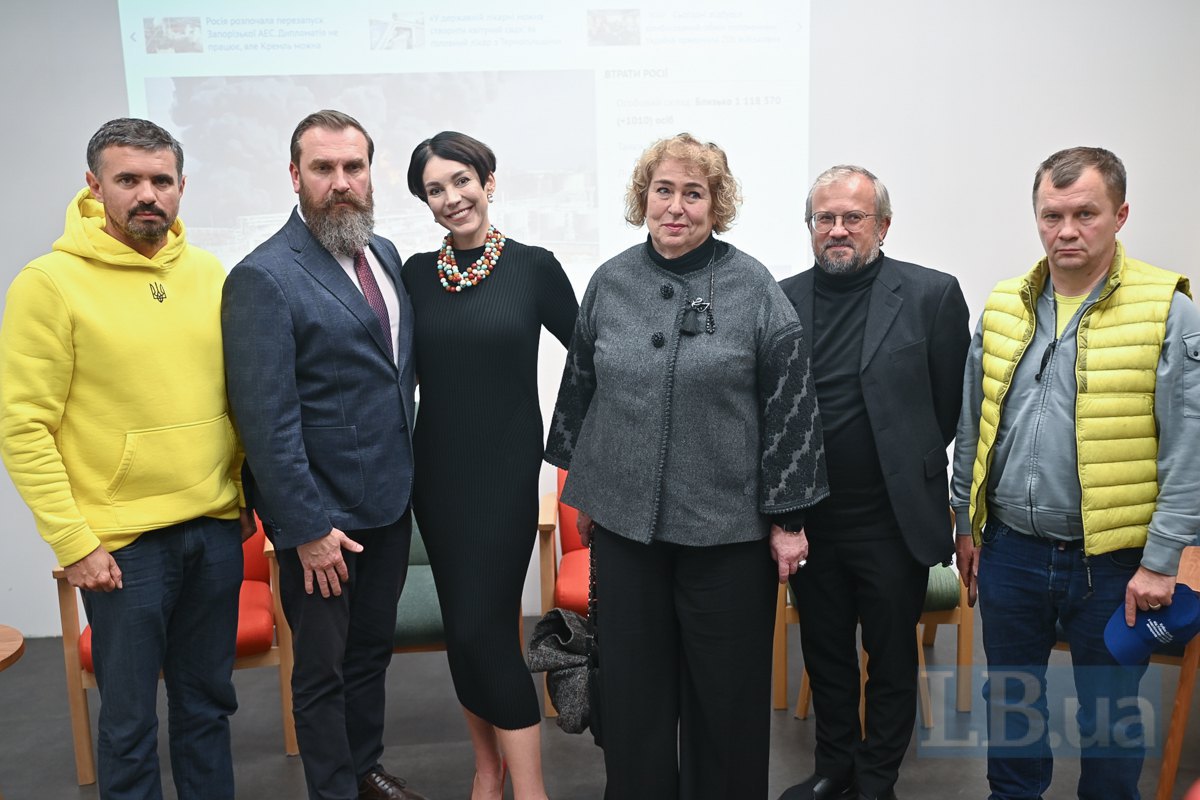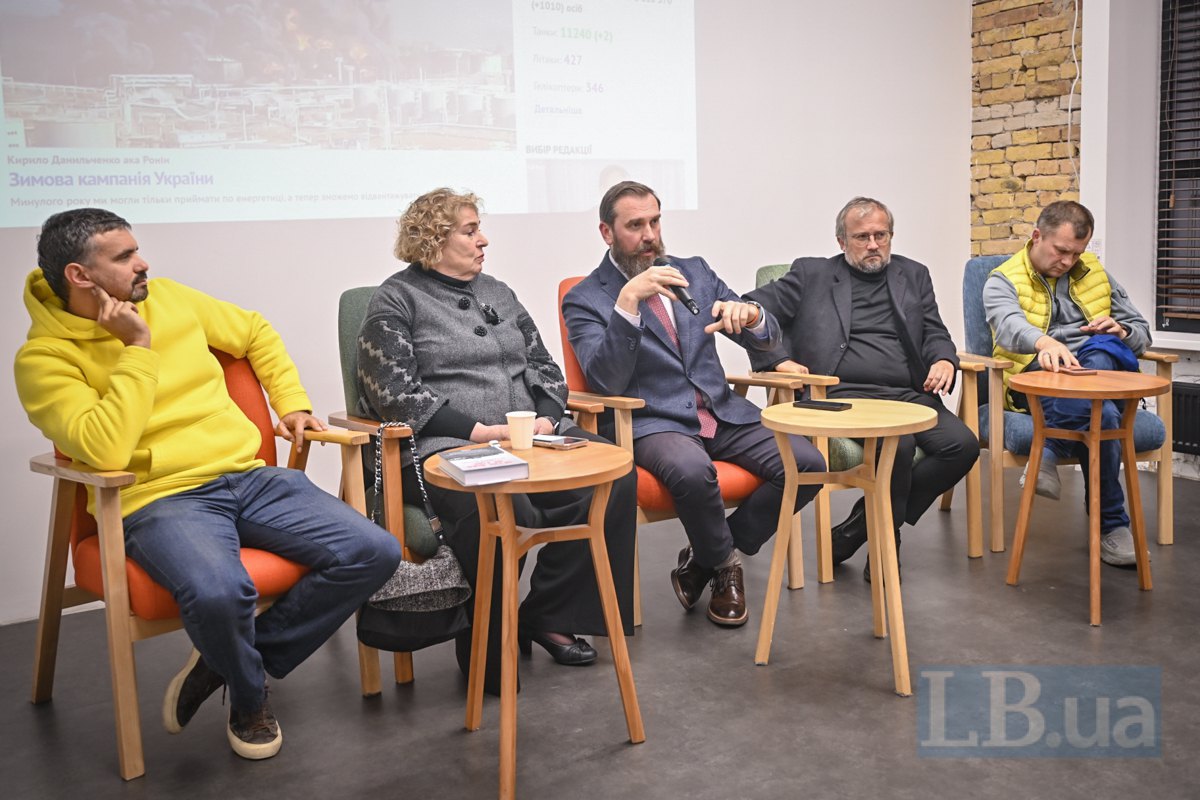
What is happening with education reform. The minister explains
The reform must cover all levels of education — changes in higher education alone will not produce the desired results, says Minister of Education and Science Oksen Lisovyy. Interest in the natural sciences is already waning in primary school, and it is precisely these subjects, along with engineering, which are so essential to the economy, business and defence, that are currently lacking in applicants. When even one organ in the body is not functioning properly, a person becomes ill. The same is true of education.
At the same time, Oksen Lisovyy noted that at the level of general secondary school, "certain problems are already being addressed" so that children enter senior — specialised — school better prepared.
This year, a pilot programme for senior specialised schools was also launched in 30 lyceums. It provides for the choice of a specialisation — engineering, technology, natural sciences — with a mandatory number of hours that can be supplemented with humanities subjects. Starting next year, 100 schools will join the reform, and from 2027, it will be scaled up to all educational institutions, the minister said.
However, this means (as pointed out by Oleksandr Dovhan, an employee of the Cancer Institute) that the country is moving from an 11-year model to a 12-year model, and in 2027, schools will not have graduates, and universities will not have applicants from schools.
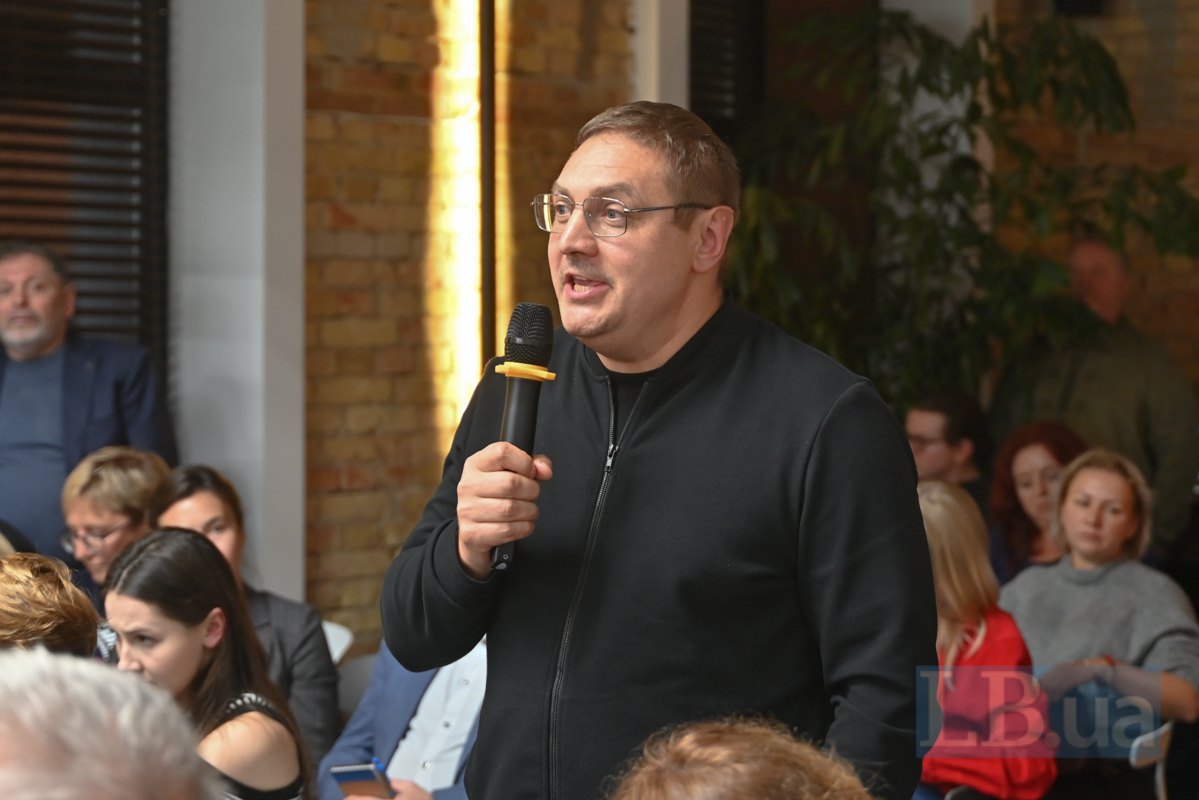
Oksen Lisovyy does not see this as a tragedy and assures us that the result will be worth it.
"What will universities do this year? They will teach second-, third- and fourth-year students. They will accept those who did not enrol in their first year after graduating from school into their first year. There are quite a lot of them today. They will accept those who studied in schools abroad. God willing, by that time the war will be over, and there will be veterans. Universities will have enough work even without these first-year students.
Enrolment will decrease by 50-60% [this year]. But that is no reason to stop the reform. Solving the problems we have today with the quality of general secondary education, in particular senior secondary schools, and career guidance in schools, is worth perhaps implementing certain support policies for universities at this time," the minister said.
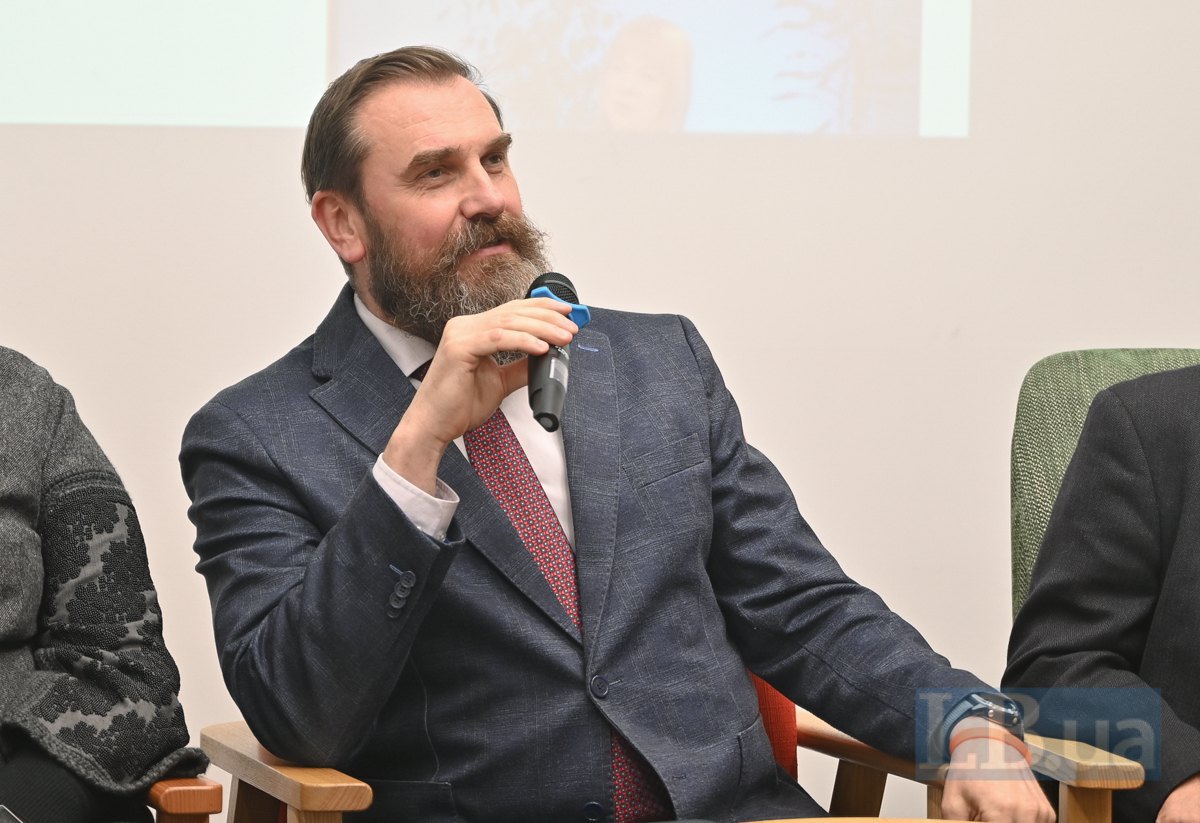
Furthermore, this reformed senior school with specialised education, rationalised division into professional academic and vocational education (which is also being reformed) logically requires changes at the next level — in higher education, notes Oksen Lisovyy. Without this, neither the loss of human capital nor the exacerbation of other crises can be avoided.
What changes in higher education is the Ministry of Education and Science currently working on? The minister says the focus is on three aspects.
The first is the modernisation of academic management in the hope of overcoming "certain anomalies that have become entrenched in the system — these include 'perpetual' rectors, various manifestations of corruption, and the issue of indicative cost."
"This is about price competition. When different universities — from a classical university to the Department of Refrigeration and Air Conditioning — train specialists in international law, but for different prices. Accordingly, by competing on price, they prevent those who do it well from growing," the head of the Ministry of Education and Science outlined the problem.
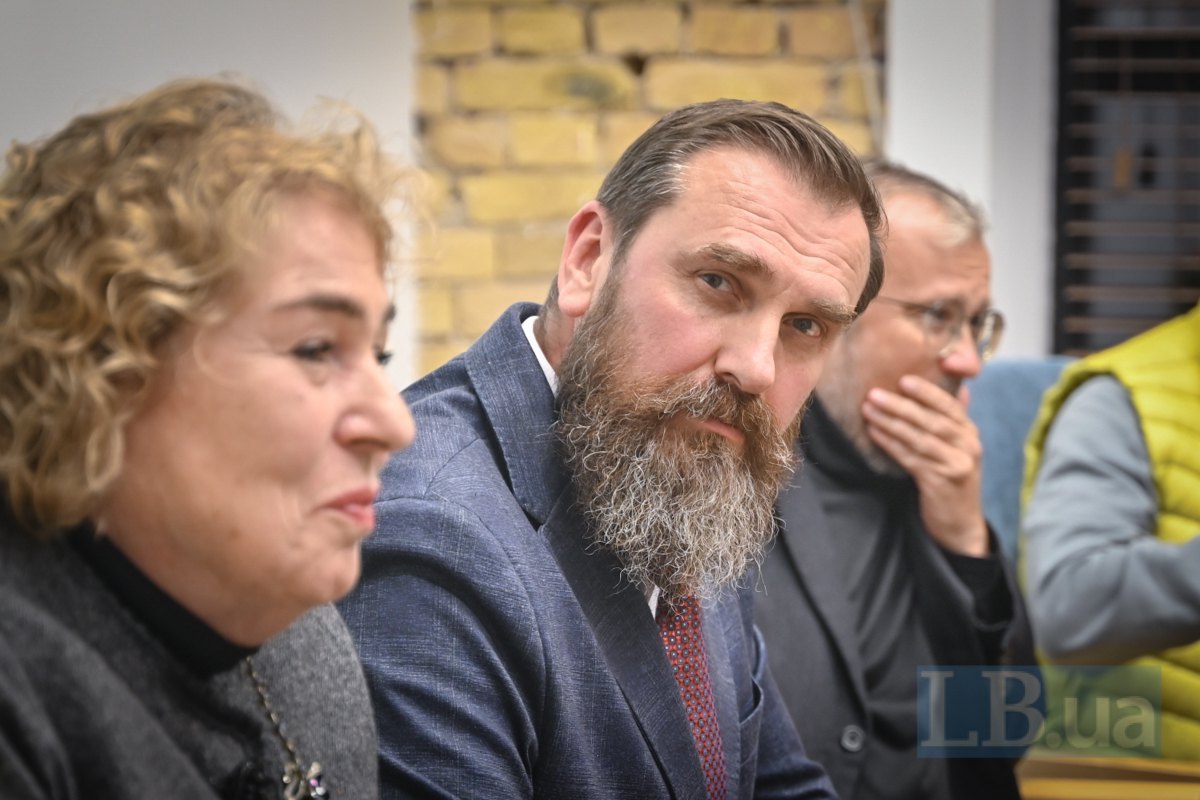
To democratise administration, the ministry, together with the British Council and other partners, says Lisovyy, is developing appropriate programmes. And already a thousand academic managers — including vice-rectors, deans, department heads, young specialists, etc. — are undergoing this training.
Another focus of the reform is the optimisation of the university network, i.e. reducing the number of higher education institutions. The minister assures us that the current network has long been out of step with “neither today’s nor tomorrow’s Ukrainian demographics”. Everyone seems to understand this, but merging strong universities with weaker ones always provokes fierce resistance and protests.
The third aspect is the introduction of monetisation of education funded by the state.
"Law 10399, which is now in the final stages of parliamentary consideration, provides for three models of monetisation for talented beneficiaries (national scholarships — tuition fees + scholarship — for applicants with the highest scores (about 5%, according to the Ministry of Education and Science); state grants — partial or full funding for contract students (approximately 20–30% of applicants); state orders with a job guarantee for priority specialities (25–30% of applicants); grants for privileged categories (IDPs, children of combatants, children with disabilities, etc. — Ed.). The state order is being rationalised, becoming a genuine state order for specialists who will be needed by the market in five years' time," the minister noted.
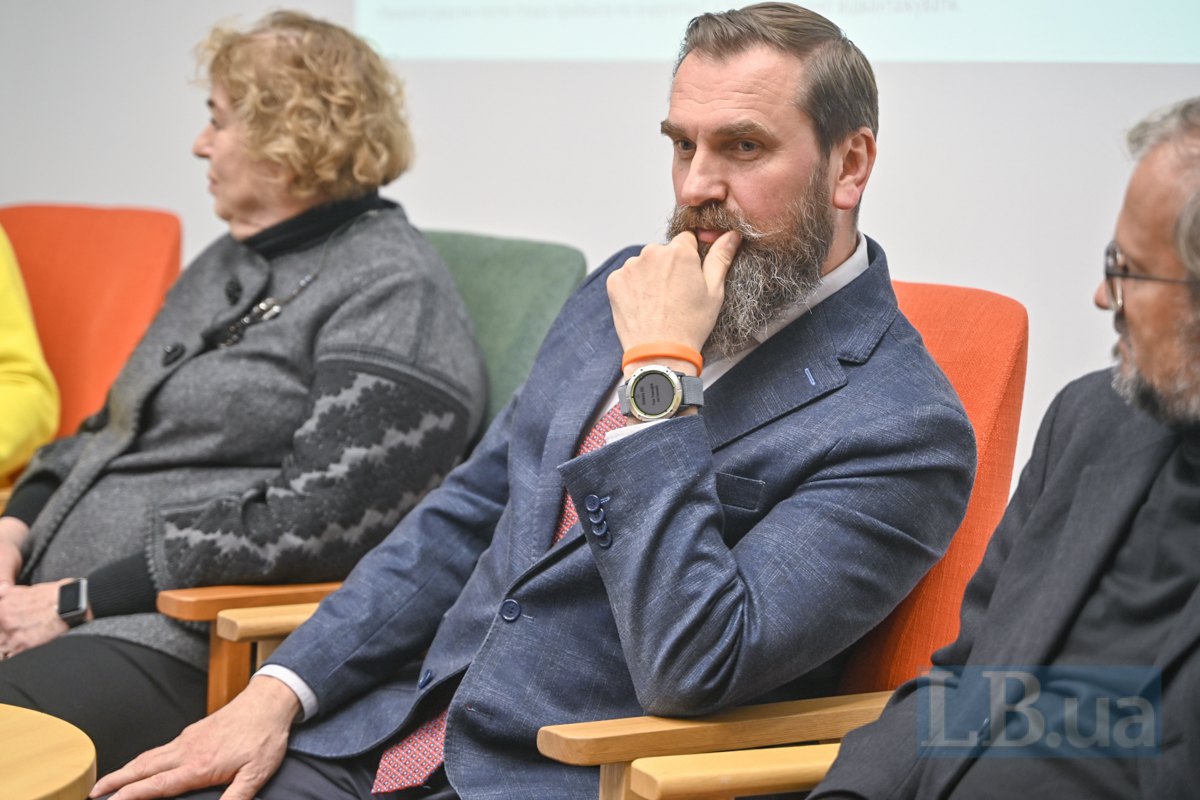
The Ministry of Education and Science is continuing to implement individual educational trajectories, which were developed by the former deputy minister, Mykhaylo Vinnytskyy.
"The law on individual educational trajectories has been adopted. It requires quite a lot of work at the ministry level, in terms of subordinate legislation and at the level of each individual university, which is developing its own programme. That is, admission to a broad field is envisaged, then we choose profiles, and then we select elective courses ourselves," said Oksen Lisovyy.
The main thing that everyone, without exception, needs to understand about the reform, according to the minister, is that education needs to be constantly changing.
"To rethink, modernise, look for new approaches, respond to external challenges, and even predict new ones. What is the complexity of the reforms today? We want to change the system that will produce a product for a world that we do not yet understand, do not see, and are not even able to predict," the minister is convinced.
Comments on the current education system
60% of participants in international academic competitions (in mathematics, chemistry, and computer science) did not enrol in Ukrainian universities, choosing to study abroad, and only 40% remained in Ukraine. Talented young people are leaving the country, laments Tymofiy Mylovanov, president of the Kyiv School of Economics. And this, in his opinion, is an argument against defending the current education system.
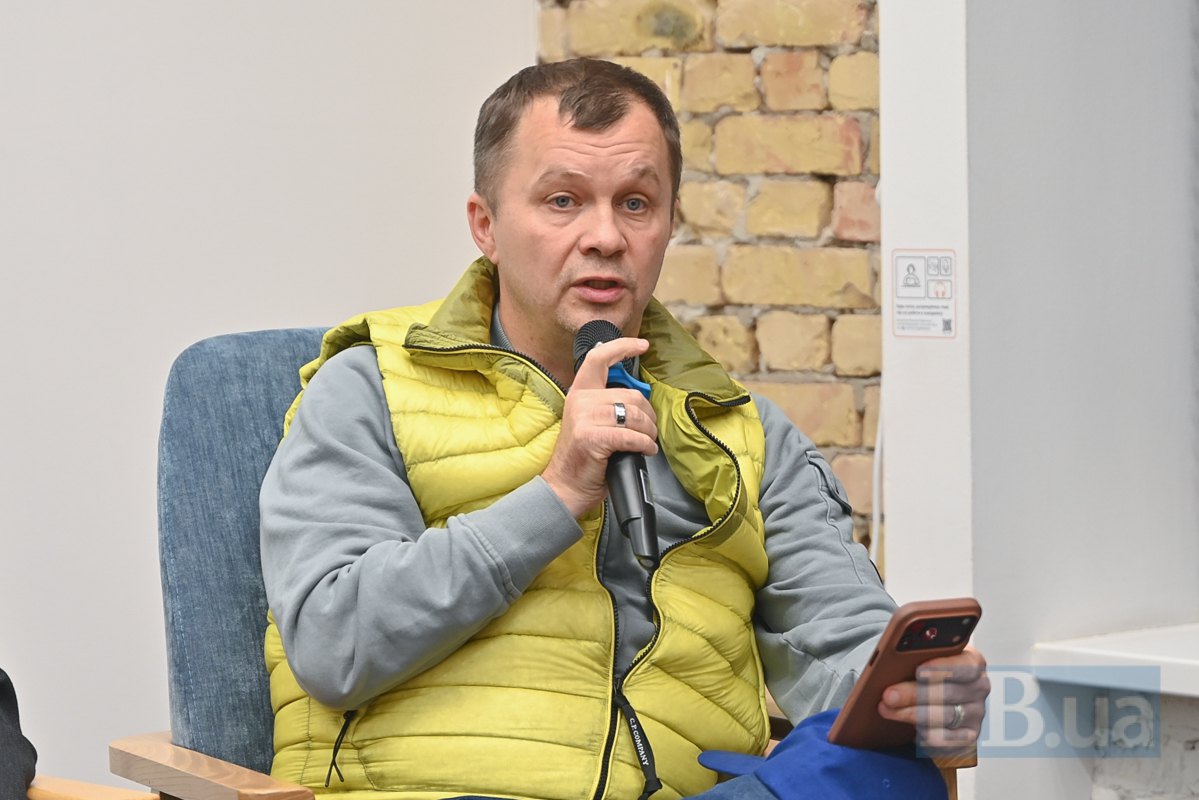
The problem, according to the former Minister of Economy, is that the Soviet regime instilled a bad habit in Ukrainians — to wait for someone else to come and solve everything. And the state supports these expectations, even though it cannot justify them. This partly applies to education reform, where decision-makers have been reluctant to make radical changes for years, opting instead for a middle-of-the-road approach. Take the merger of universities, for example.
"No one dared to close the weak universities, so our education system is a mess and people are leaving. In the end, we are going for a mediocre compromise, trying to merge universities without even closing the ones that should be closed. And still we get protests, still we get pushback, still we demonise people who are trying to change something," Mylovanov noted.
At the same time, Mylovanov emphasises that private universities, such as KSE, which are changing the system from within, receive neither state funding nor, often, private funding, because preference is given to state-owned universities. And this is another significant disadvantage, he believes.
"I find it unpleasant and offensive when members of the jury of the next round, which allocates funds, including state or private funds, in which the Kyiv School of Economics participates, say: 'We must support state universities'. This fundamentally offends me because it violates the Constitution of Ukraine and demonstrates the inadequacy of the mentality of certain people. But I am even more offended when this is done by entrepreneurs and business people, rather than officials. When they say that we should support someone not on the basis of what we build best, but on the basis of property rights, relationships or something else. Will we buy state-owned drones tomorrow or because we need to support a specific enterprise?" he said.
According to Milovanov, during wartime, wasting time waiting for someone else to make decisions is extremely counterproductive. His recipe for change is simple: stop complaining, find your mission, and start acting. Everyone should do as much as they can to contribute.
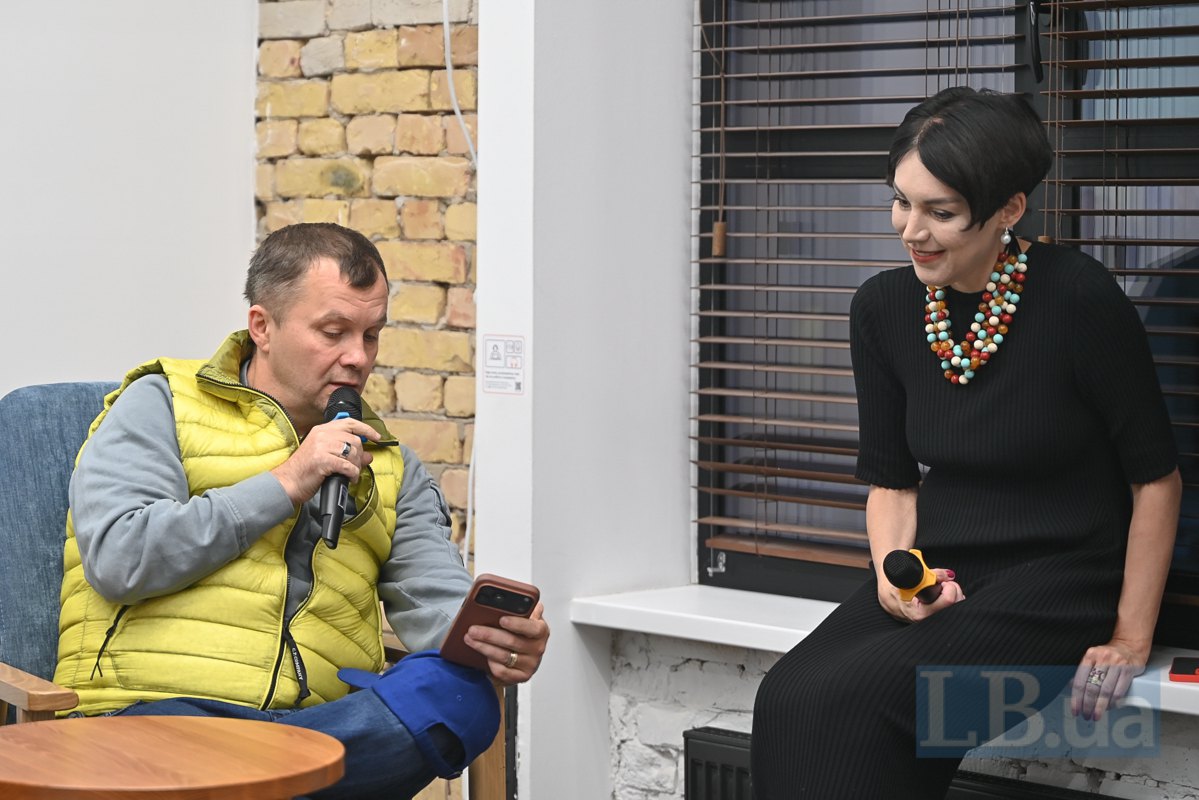
We could still turn a blind eye to the state of modern education, pointing to the Soviet legacy, if we weren't at war. Today, changes in education and science are a matter of survival. Without fundamental science, there will be no modern weapons. The Chinese drones we are "twisting" are not the weapons of the future. We will not be able to oppose an enemy that is not going anywhere unless we turn into Israel. Why is little Israel not afraid? Because it has technology and its own weapons production. I am not even talking about everything else," said businessman Ihor Liski, chairman of the supervisory board of the investment company EFI Group.
In his opinion, educational reform should take into account the state's economic strategy and its vision of where we want to be in 20 years.
"I would very much like to see a council formed with the involvement of big business to determine what we will focus on in the future, because we cannot build everything. Clear tasks should be set — to build power plants, nuclear power plants, aeroplanes, high-speed railways, glass factories, or whatever. There should be a development plan for 20-30 years. And based on these goals, we can determine what specialists we need.
And then specifically move on to what universities we need, what science we need, what specialists. Use our small resources for these growth points. Build at least three, four, five successful universities with a role model. Where there will be graduates who already know where they will work," said the businessman.
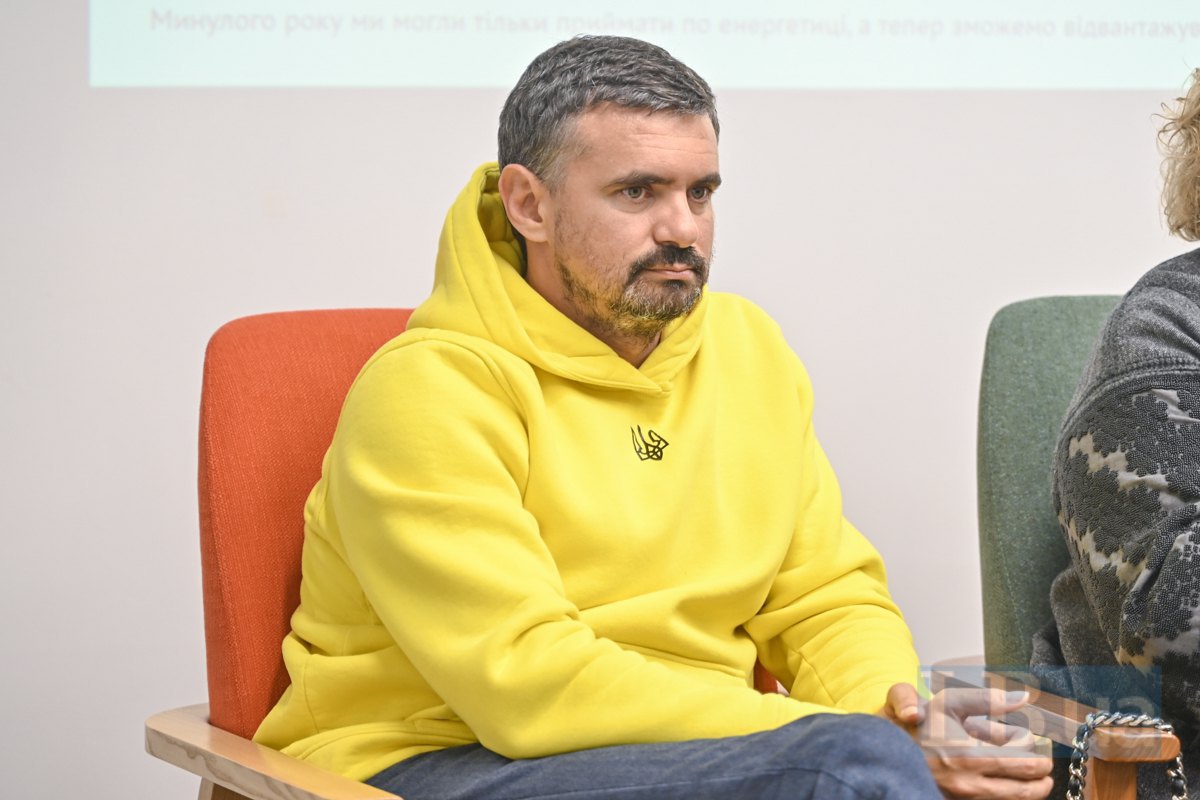
Now, according to Liski, the reasons for merging universities — due to a "bad" rector or lack of funding — are not sufficiently justified. Because this could lead to the closure of educational institutions that are truly needed. He also questions the effectiveness of financial expenditures on education reform. Is the Ministry of Education and Science really spending the small amount of money allocated by the state for education rationally by simply reducing the network of higher education institutions?
The reduction in the number of universities was not an end in itself, replied former Deputy Minister of Education Mykhaylo Vinnytskyy, who was responsible for higher education reform at the Ministry of Education and Science.
"Over the past two and a half years, 12 universities have been merged. This means that we have effectively closed 12 weak universities. The reduction of universities is not about reduction as an end in itself, it is about consolidation," said Vinnytskyy. "And I want to thank the deputies, who unfortunately are not present here [at the discussion panel], who, with their demands for my dismissal, clearly stated that consolidation and, in general, changes to the network are not timely. Oksen and his team remained, but the main demand was 'without Vinnytskyy'. That is a fact. And Oksen can confirm this."
The former representative of the Ministry of Education and Science also stated that the experiment with supervisory boards at universities, which were ultimately supposed to elect university rectors, had failed. According to him, this applies to KAI, Zaporizhzhya, and Ivano-Frankivsk.
"The question is not how rectors are appointed. The question is what competencies the managers of these universities have," Vinnytskyy said.
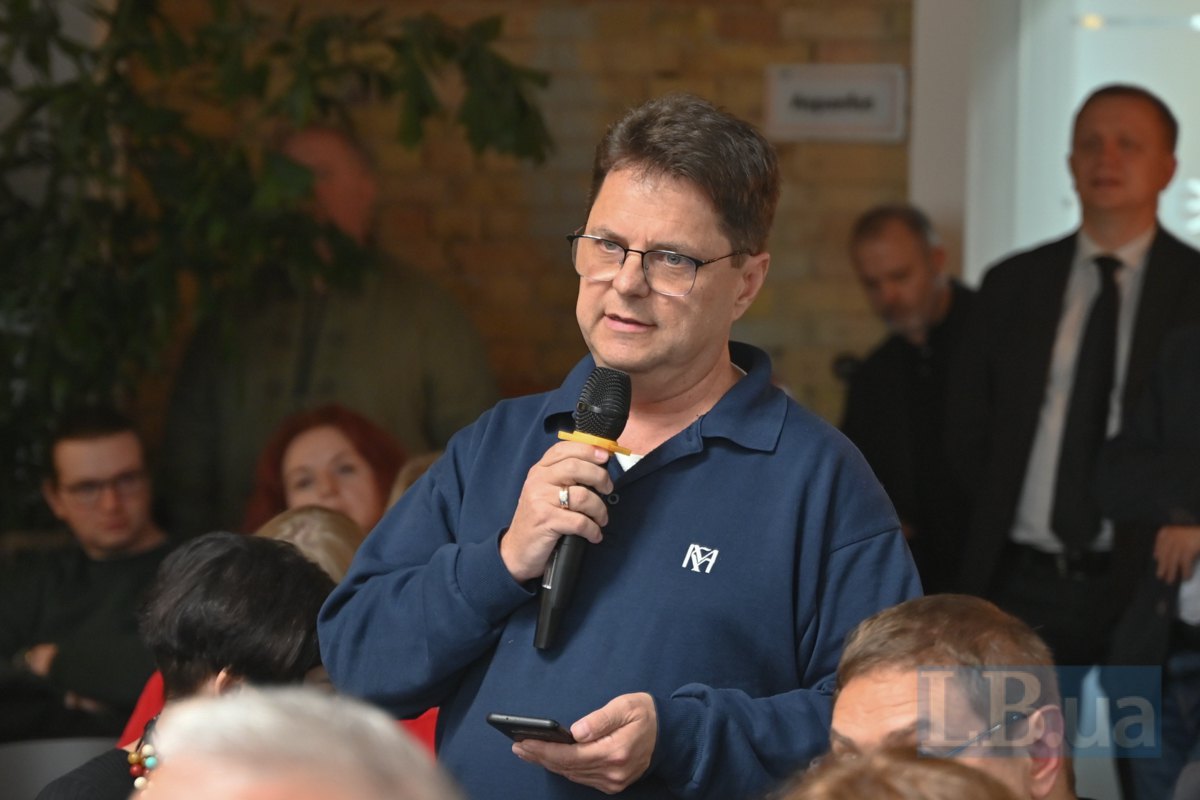
Referring also to Ihor Liski's analogy about Israel, he emphasised that universities in Israel are state-owned, and it was education that became the driver of the country's development.
"In the 1960s, they did not ask themselves who we are preparing, who we will be, what our economy will be like. They had a very simple answer: educated people will build better than any magicians or visionaries, or those who make predictions," Vinnytskyy noted.
In general, the former deputy minister of education called on everyone to stop thinking that Ukrainian education is bad.
"We have good education. Through our education, we are stopping the horde. It is precisely those people who studied in these 'terrible' Soviet and post-Soviet schools and universities who have now stood up and, with their innovations, excuse me, stopped the whole world. No one expected this from us. Where did these people come from? Not from the Americans, not from Mars, but from our education system. Western partners, to be honest, are shocked by us. We have awesome universities. Different types of institutions are now being formed. Some will be more research-oriented, some will prepare students for the labour market, and that's okay. But that doesn't mean the system is bad," says Mykhaylo Vinnytskyy.
"We often hear why we don't have a Harvard or Cambridge. But please tell me, dear politicians, rectors and businessmen present, who is ready to allocate half of the state budget to higher education and science for three to five research centres? Not on relocation, not on the mythical preservation of supposedly unique institutions in Crimea, Donetsk, Luhansk, and now Kherson and Mykolayiv. Not on raising salaries for all 120,000 teachers in the system. But on three to five scientific university centres. Who is ready? And what will happen to the 160,000 applicants who are not winners of academic competitions and did not score 200 points on the National Multidisciplinary Test, but still want to receive higher education, and we need them with higher education?”
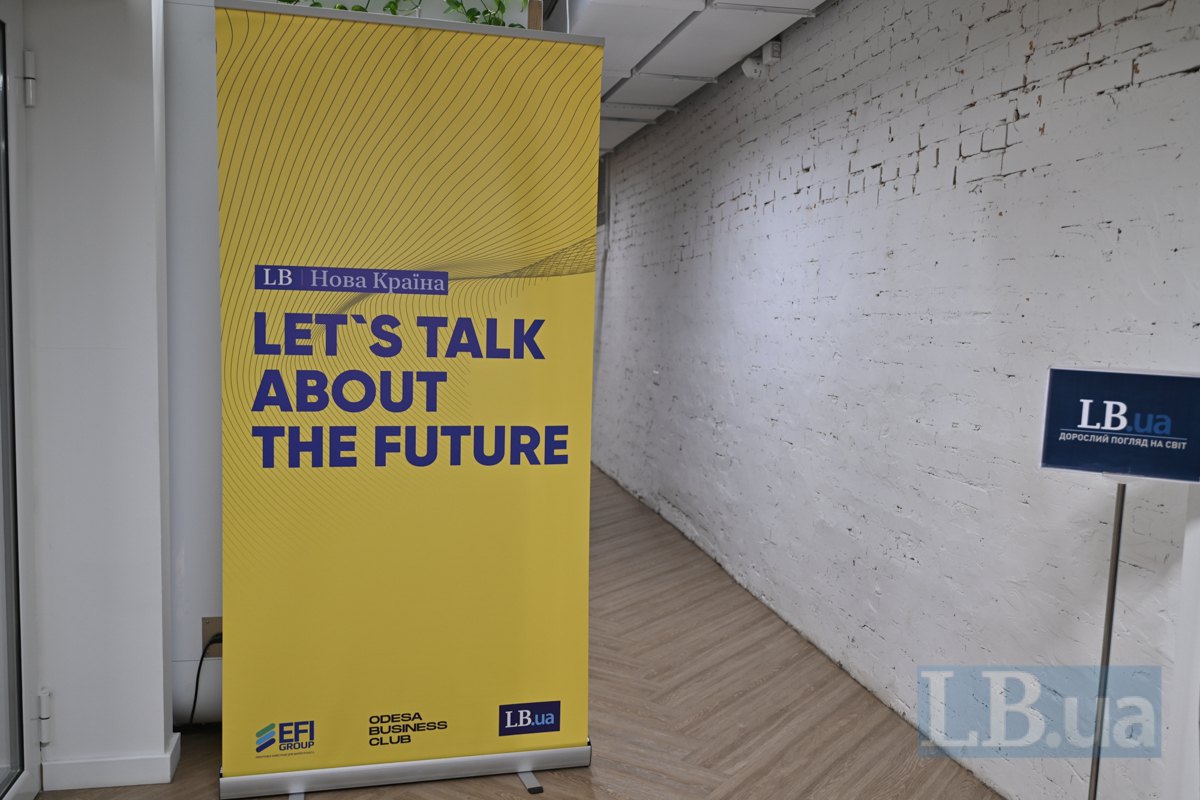
Why higher education is not about the labour market
“There is a very bad trend spreading across Ukraine: they say that we have too many people with higher education and that we need to train unskilled workers. But higher education is not about the labour market at all. Higher education is about human development. The labour market is about skills. Skills and education. So, universities should provide education.
And it's very good that our young people want to get this higher education. No matter how hard I tried to analyse the basics: unemployment rates by different levels of education; employment rates by different levels of education; income levels by different levels of education — don't tell me that you can become a billionaire without a higher education. Someone may become one, but income is mostly directly proportional to the level of education, employment is directly proportional to the level of education, and unemployment is inversely proportional to the level of education. These are statistics, and they are quite objective," says Ella Libanova, director of the Institute of Demography and Social Studies.
But large universities must become centres of education, science and the formation of a new Ukrainian identity, in her opinion, so that Ukrainians can resist Russia in the information war. So that the vacillation between the Soviet Union, Europe, "because it's better to live there," and Russia, "because there is order there," finally stops.
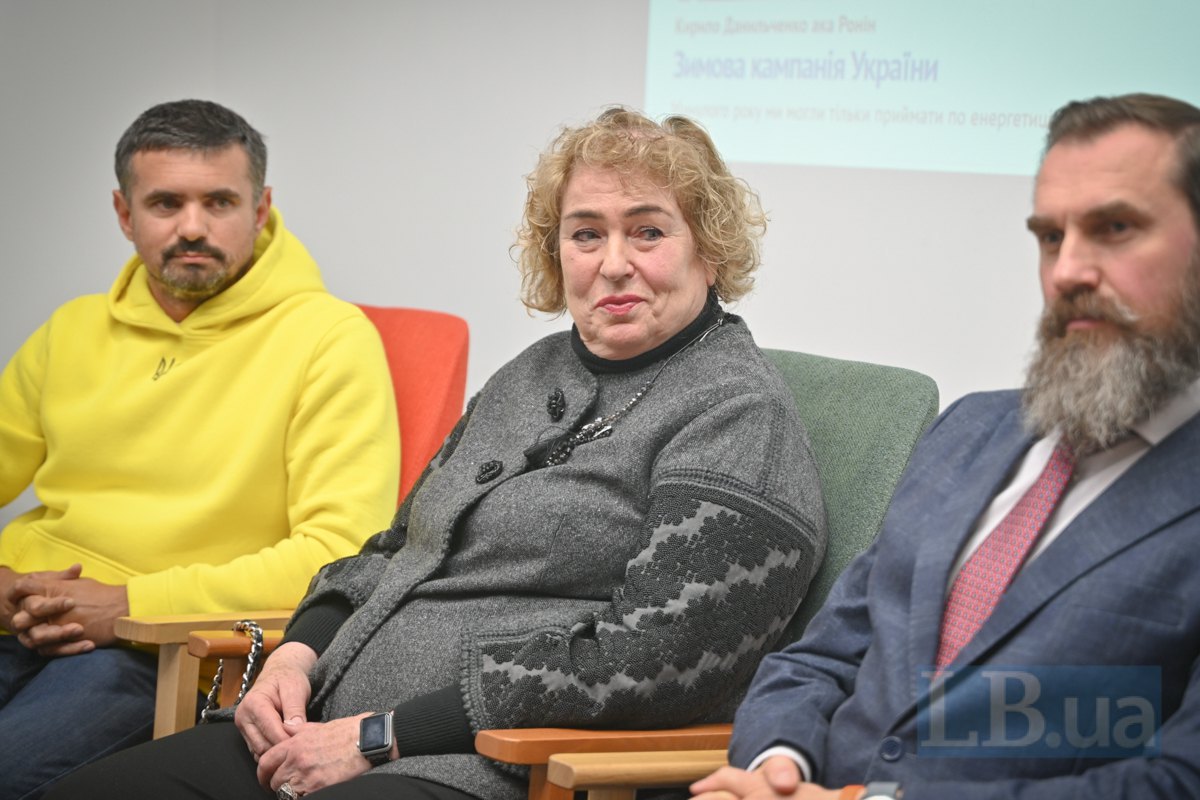
"Sometimes I am afraid to read information on social media. Not everyone is able to distinguish truth from lies," Libanova noted.
Education, noted Minister Oksen Lisovyy, is the only thing that can eliminate certain mental deformities that have arisen in us as a society that has experienced several profound traumas.
"Shifting responsibility away from oneself and onto the authorities, who at one time took away this people's right to make decisions, their right to freedom, and did so brutally — with waves of repression, the physical extermination of the elites, forcing them into emigration, deportation to Siberia, which imposed certain patterns of behaviour on us, which, unfortunately, are not limited to one generation, but are passed down from generation to generation," said Oksen Lisovyy. "Only education can heal this history and return us to a normal natural state, a high level of responsibility for our lives, which has always been so inherent in Ukrainians that we even constantly tried to somehow shake and destroy our own vertical of power when it was just emerging. That is why leadership is needed in education. This is my personal motivation for coming here from another field."
The university first and foremost provides a worldview based on values, and then tools are added to it: skills, knowledge, other hard and soft things, says Oksen Lisovyy.
"Let's break down what patriotism is. And how it should be formed in school. How can we teach a person to be a patriot? We can't. You can't teach a person to be a patriot. Patriotism is the result of three focused actions by the teacher and the environment in which the person grows up.
The first is the formation of value orientations. The second is the formation of identity, which is mainly formed in the humanities, but can be woven into all disciplines, including physics and mathematics. And the third is civic competencies. Where am I? Where are my roots? Where do I want to go? How and with what tools will I achieve my goal?
And when you have formed all this in a child, given them confidence that they can manage their tangible and intangible assets: culture, territory, language; know how they influence the management of this corporation called Ukraine; knows where to go, understands that freedom is an important aspect of their personal effectiveness, that dignity is a very important component for a comfortable life, when no one humiliates me and I, accordingly, do not humiliate anyone, when trust is a very important aspect of interaction between people — these are value orientations.
Then patriotism arises as a consequence of these three vectors," the minister believes, emphasising that it is necessary to support the humanities, not just applied sciences.
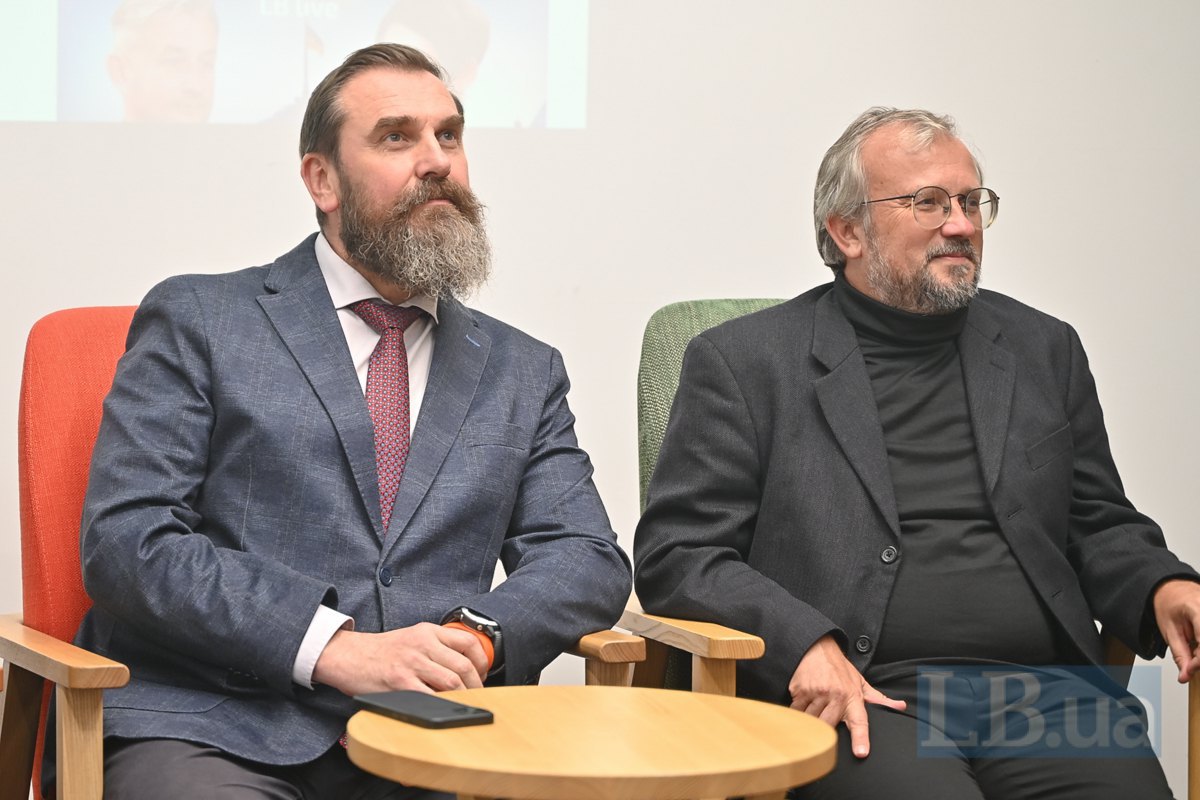
Doctor of Philosophy, professor at Loyola Marymount University in Los Angeles (California, USA), theologian Kyrylo Govorun cited the example of countries traumatised by war that nevertheless managed to make a qualitative leap in education.
"I had personal experience teaching in Bogotá, Colombia, and Santiago, Chile. Colombia is generally close to us in a number of ways. When I was at the University of Medellín, I was struck by an exhibition of drawings from the civil war era, which showed the atrocities committed by the FARC, a rebel group. And this is actually about our children's drawings, when children draw how Russians are occupying Ukraine. The storylines and styles are the same. I had the impression that I was looking at a Ukrainian children's drawing. And at the same time, this university has developed into one of the best in Colombia,” said Kyrylo Govorun. “In Chile, I taught at the Pontifical University. It is a private Catholic pontifical university. It is considered the best in South America overall. And so I saw, on the one hand, a traumatised society that had recently been in poverty due to civil war, and on the other, how they were able to turn this trauma into a significant leap forward in education."
Of course, the professor emphasises that this does not apply to all universities, but it demonstrates that the path to educational development exists even under the most difficult conditions.
He gave another example — the Democratic Republic of Congo, one of the least developed countries in Africa.
"It is generally dangerous to go out on the streets there. And yet there are wonderful universities, a striking contrast to what is happening on the streets. For example, the National University in Kinshasa (the capital of Congo — Ed.) or even better than it, the Protestant and Catholic universities.
And this is also an example of a country that is still in the throes of civil war, traumatised by the colonial atrocities of King Leopold II, whom I often compare to Putin, because Leopold II also said that he was against colonialism and slavery, but he himself created the worst system of colonialism at the beginning of the 20th century. And, in fact, I say the same thing about Putin in Africa. Despite all this, it is a very positive example of how education can move society forward," said Kyrylo Govorun.
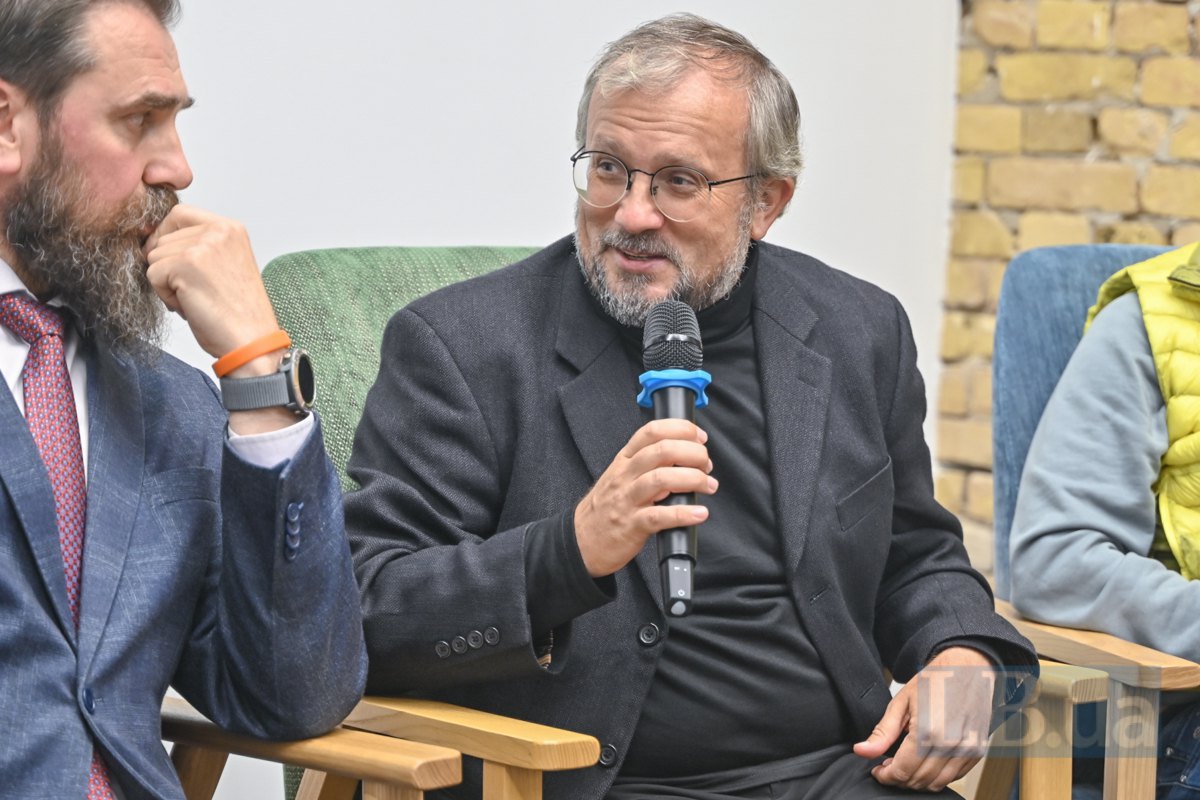
What education reform should take into account
According to Professor Kyrylo Govorun, the education system in Ukraine should be transformed into a system of holistic education. The idea is that students should have the opportunity not only to specialise in something, but also to study a wide range of disciplines.
"To avoid Putin syndrome, for example. What is Putin's problem? He studied at the law faculty of Leningrad University. But it is obvious that he has always been interested in history. Since his specialisation was narrow — law — he could not realise himself as a historian. He was only able to do so when he had a little more time, when he became a dictator. But he became an amateur historian with the corresponding consequences.
If Putin had studied at a Jesuit university (just as an example, this applies to many other universities), he would have had the opportunity to choose not only law, but also history and theology. Not the theology preached to him by Kirill, but his own critical approach to theology. Then you couldn't fool him with the "Russian world".
When there is a choice, as there is at Liberal Arts College, a person does not become ideal a priori or avoid the scenarios that Putin began to develop. But the possibility of such a scenario is minimised. I think it is very important for us, for Ukraine, to have the opportunity to educate students in this way — with the right to choose not only their specialisation, but also different disciplines. Then, perhaps, there would be no Putin," says Kyrylo Govorun.
In addition, he emphasised the importance of the humanities component in education, which will serve as the foundation that binds society, academic and university communities together, since almost all universities in the United States teach philosophy or religious studies.
"Scientists are now beginning to understand how the ancient Romans built their buildings without cement: the Colosseum, aqueducts, etc. The fact is that they used a special mortar with chalk mixed in for the bricks, and when moisture gets in, this chalk restructures inside the mortar and allows it to withstand all the loads that the structure takes on, despite the change in structure. Without any technology, this mortar binds all these elements together. I am in favour of humanitarian education and elements of humanitarian knowledge being such a binding force for Ukrainian society," Govorun expressed his opinion.
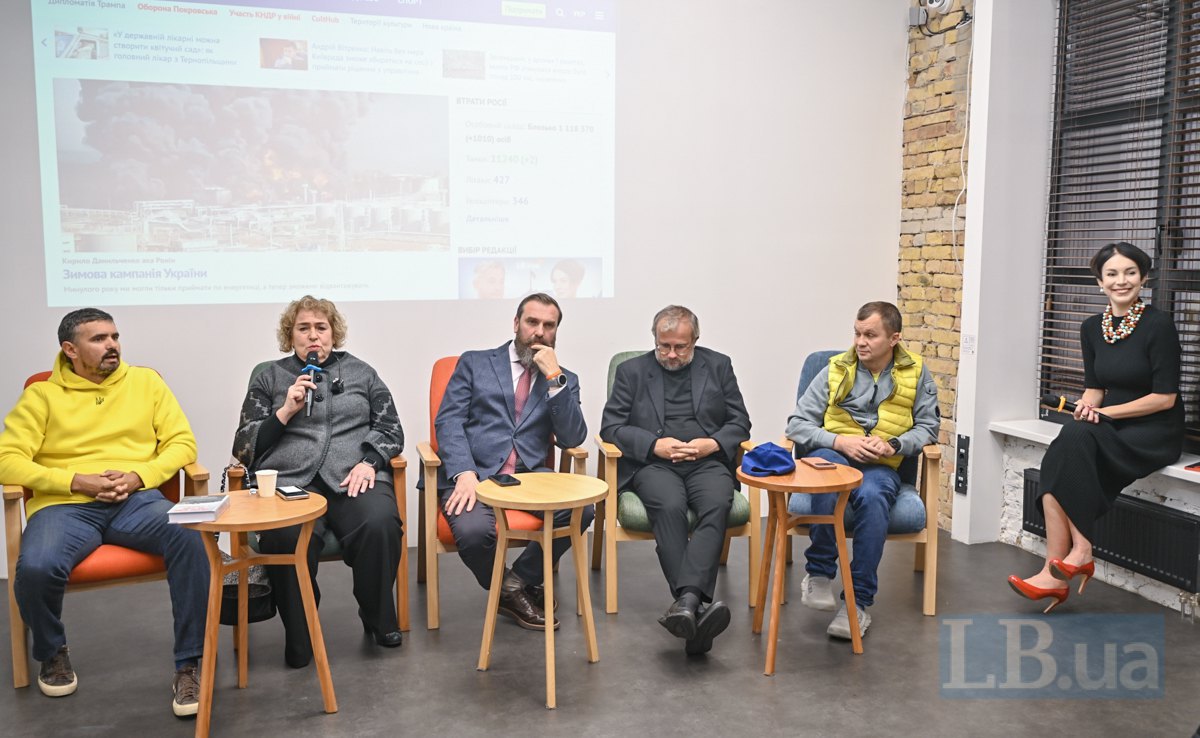
KSE President Tymofiy Mylovanov believes that at least some of the problems in higher education definitely have solutions. For example, the terms of office of "eternal" rectors, who have become like gods in their universities, could be limited.
"History shows that good people leave on their own, bad people don't. The bad ones need to be restricted," Mylovanov noted.
Weak universities, he adds, should be closed, not merged. Just as the National Bank closed weak banks due to the crisis in 2014–2016, "as a result, we had macroeconomic stability during a full-scale invasion."
According to the president of the KSE, Angela Merkel's government in Germany demonstrated a good example of university consolidation in 2004–2005 in the context of labour market reform.
"Merkel needed to change the level of unemployment and the level of competitiveness of people. The situation was such that, for example, in my field, economics, there were only two decent universities in Germany. The rest were rotten. In 12 years, Merkel managed to bring the number of departments up to world class in my field alone to 12. This is unprecedented.
This was done through consolidation, but not consolidation on Merkel's behalf, but through the creation of inter-university clusters, where the universities themselves (those that wanted to consolidate) came up with joint scientific and educational initiatives and projects, submitted them to the relevant ministry, but the decisions on them were made by international scientific councils, mostly from the diaspora of American scientists," Mylovanov said.
According to him, the German Ministry of Education had no influence on who should be united with whom. The motivation was funding — those who did not join the clusters had their funding cut by 20-30%.
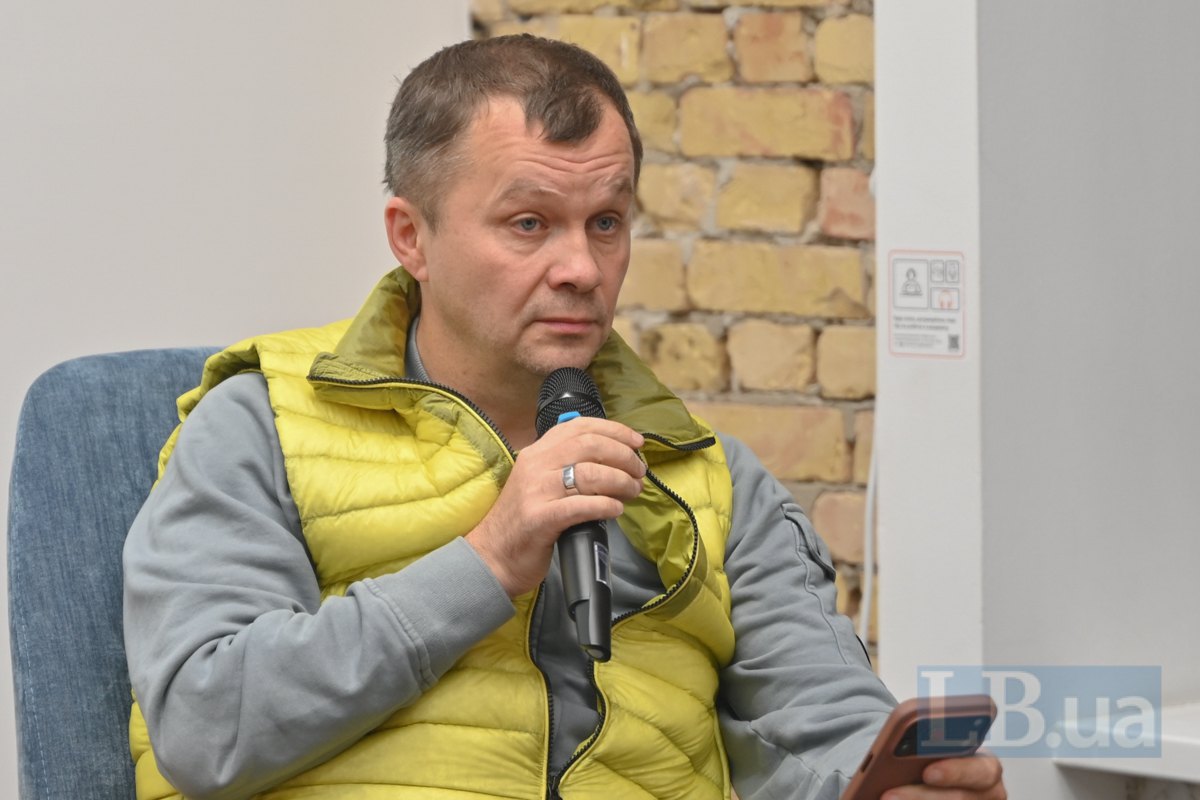
"And it worked. In 10 years, the number of worthy departments in my field has increased sixfold. The assessment was free of charge. It was conducted by Dirk Bergmann, a leader in my field, a diaspora member, a German working at Yale, who, as a reviewer, decided whether to give money to the University of Cologne or Karlsruhe.
I agree that it's all complicated. But the point is that Merkel's government only designed policy principles and monitored implementation, but did not make decisions internally," Mylovanov emphasised.
Ukrainian universities, in the end, must grow to this level, according to the former Minister of Economy, in order to produce unicorns — "rare, wild and unique people who have expertise in two or three fields and are good managers and leaders." The head of KSE is convinced that this is a critical condition for the existence of Ukrainians as a nation.
"What is happening in Ukraine? People achieve a level of expertise in something, some reach a level of administration, and if they are lucky, they become experts in two fields. But this is almost non-existent. And almost no one has expertise in three or four fields. And this is normal experience of real management with problems, with struggle and leadership, in order to lead people.
That is, the genetic material from which we build people is the same, but the output "funnel" is much smaller than in some other communities. If we are talking about the survival of the nation, we can count not in terms of the number of people, but in terms of the number of people who will pass through this educational, scientific and business "funnel". Therefore, universities must become factories for unicorns," Mylovanov noted.
And for this, ten universities will be enough, he believes, not 400.
A separate branch of the discussion was the involvement of business in the education sector.
Businessman Ihor Liski believes that production and education need to be brought closer together so that business not only provides individual scholarships, but also acts as a real customer for the industry.
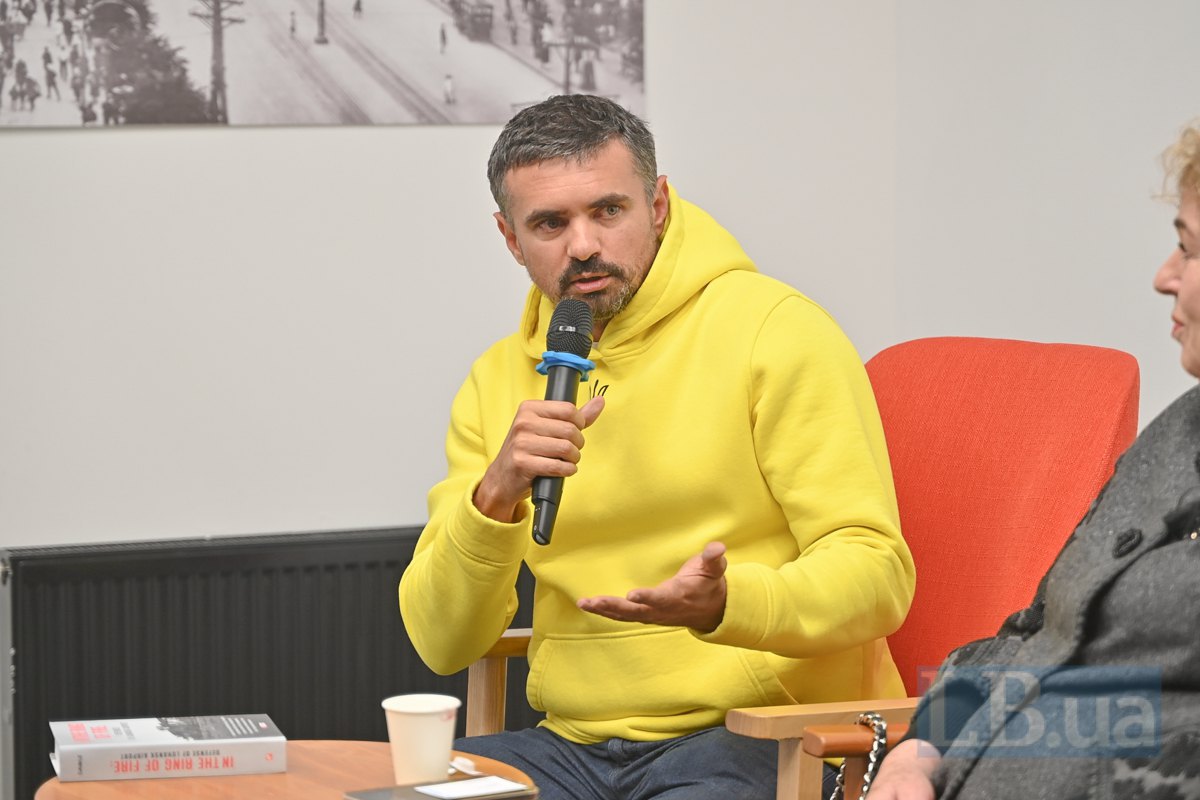
"I want to understand how I can influence graduates to benefit me as an entrepreneur, because I am the main customer. It is difficult for the state to become a customer, except in some narrow areas, but globally it has not yet grown to such lofty heights as to see the future. For example, in business, I plan for development for at least 12–15 years. Some projects take seven years to build. And they will pay off in 15 years. Very often, the state does not even plan for five years — more often than not, it plans "until the elections," "until the re-elections," "at least until the end of the quarter."
Until entrepreneurs or the private sector see themselves as real customers, see that education works to their advantage, that it gives them a real opportunity to invest in certain industries in the long term so that they can be innovative, there will be no such cooperation," noted Ihor Liski.
Roman Hryshchuk, the Servant of the People party MP and a member of the Verkhovna Rada's education committee, believes that such a convergence is already taking place. He recalled that a number of businesspeople have joined the management of state universities in the context of corporate governance reform. For example, the former president of Kyivstar headed the supervisory board of the National Aviation University, and Boris Shestopalov, co-owner and managing partner of the HD-group (Khlibodar) group of companies, headed the Zaporizhzhya National University. However, as we mentioned above, Mykhaylo Vinnytskyy, who oversaw this area at the Ministry of Education and Science, considers this experiment a failure.
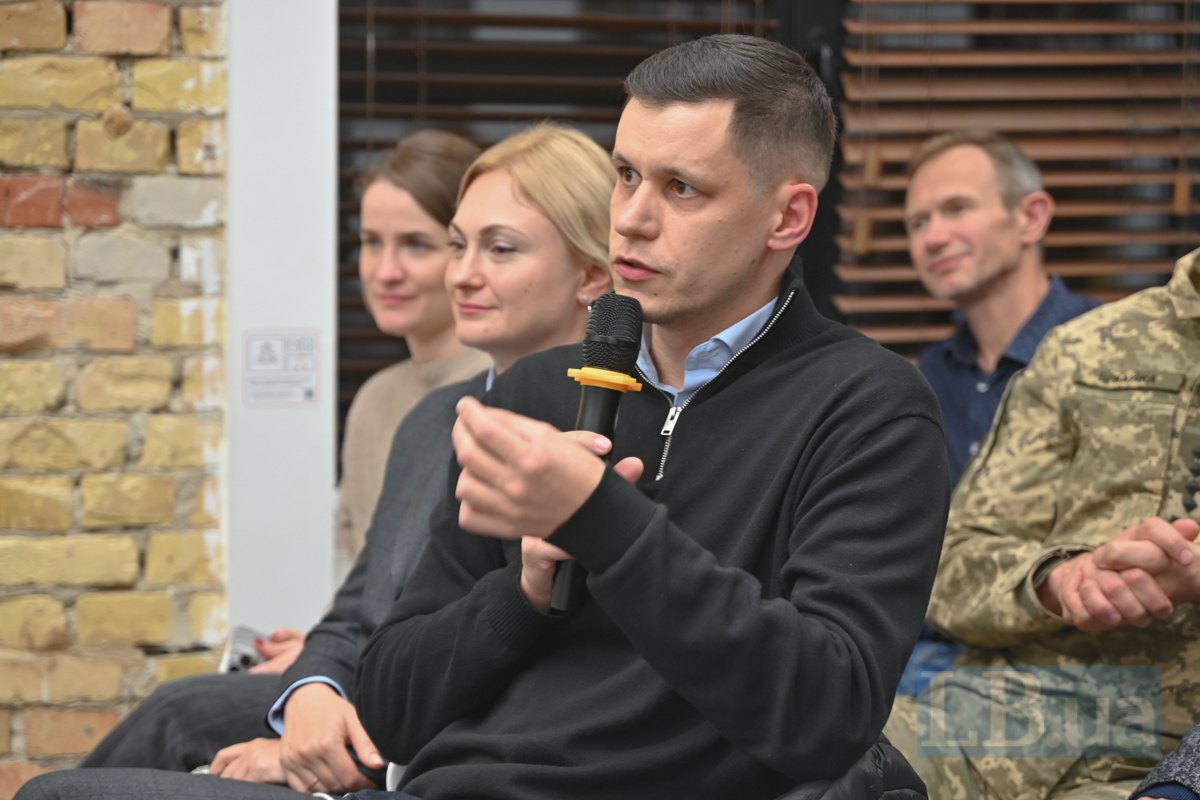
In addition, the MP notes that Volodymyr Tsoy, co-owner and president of the MTI group of companies, joined the supervisory board of the National Aviation University, Oleksandr Kardakov, founder of Octava Defence, opened DHUB for engineers and programmers, and Oleksandr Konotopskyy, founder of Ajax Systems, opened an electronics laboratory at the National Aviation University.
Minister of Education and Science Oksen Lisovyy added that universities can now invite business representatives to teach elective courses without burdening them with science or any work at the department.
Tetyana Kaganovska, rector of Karazin Kharkiv National University, believes that in order to get the specialists they want, businesses should not come to senior courses and master's programmes, but should go to schools together with universities.
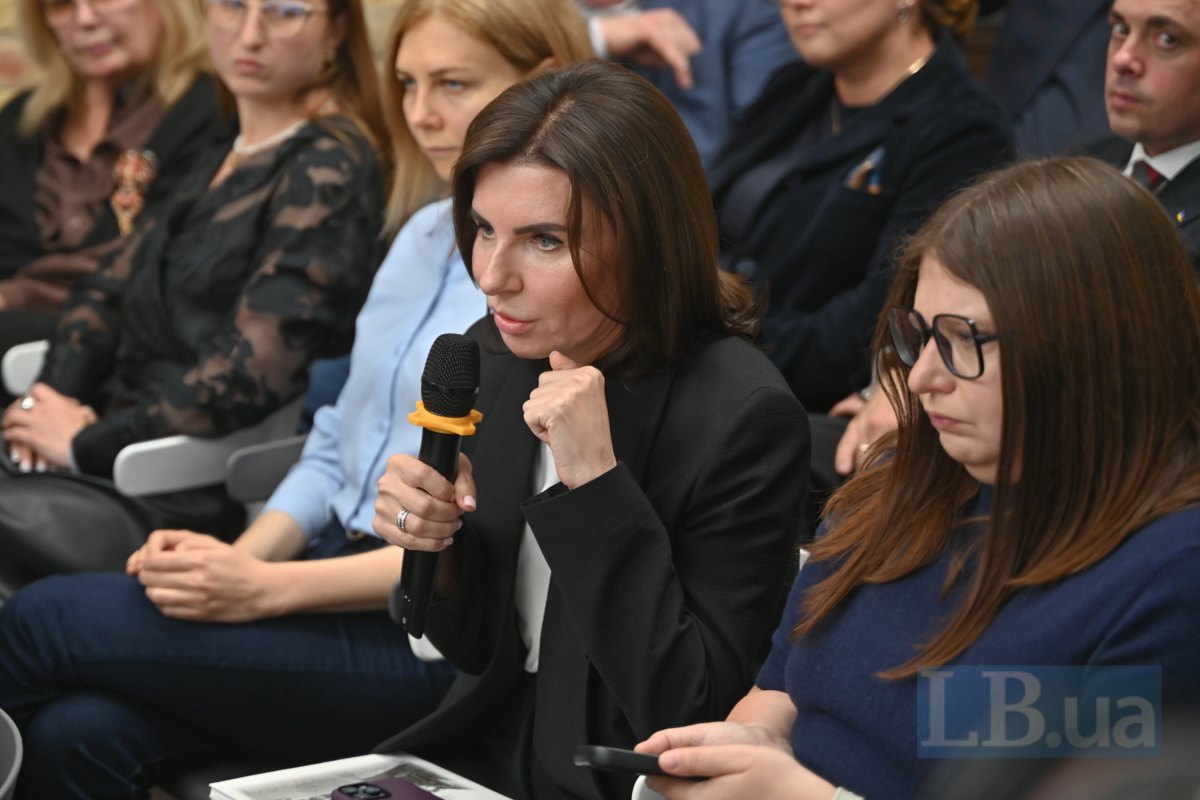
"If we look at enrolment in natural science programmes today, for example, chemistry at Karazin University, which has one of the strongest scientific schools, there are 13 students. And this is a victory; we have been working for many years... This year, 20 students enrolled in the Faculty of Physics and Technology. That's twice as many as last year. So I appeal to businesses: if you want to think about the future, you have to start with school," Kaganovska noted.
Volodymyr Bugrov, rector of Shevchenko Kyiv National University, cited an example of cooperation between the university and a commercial company. This year, KNU's Faculty of Information Technologies launched an interdisciplinary bachelor's programme in chemistry, which enrolled 10 students on a contract basis, with Biopharma Plasma paying for their entire tuition.
At the same time, Bugrov agrees with Tetyana Kaganovska that children should be encouraged to study applied sciences as early as possible.
"The university [KNU] has a physics and mathematics lyceum with 320 students, 50 of whom are winners of national academic competitions: 21 in physics, 15 in mathematics, chemistry, astronomy, IT, etc. In my native Ternopil Region, there are 10, while here there are 50 in one school," said the rector.
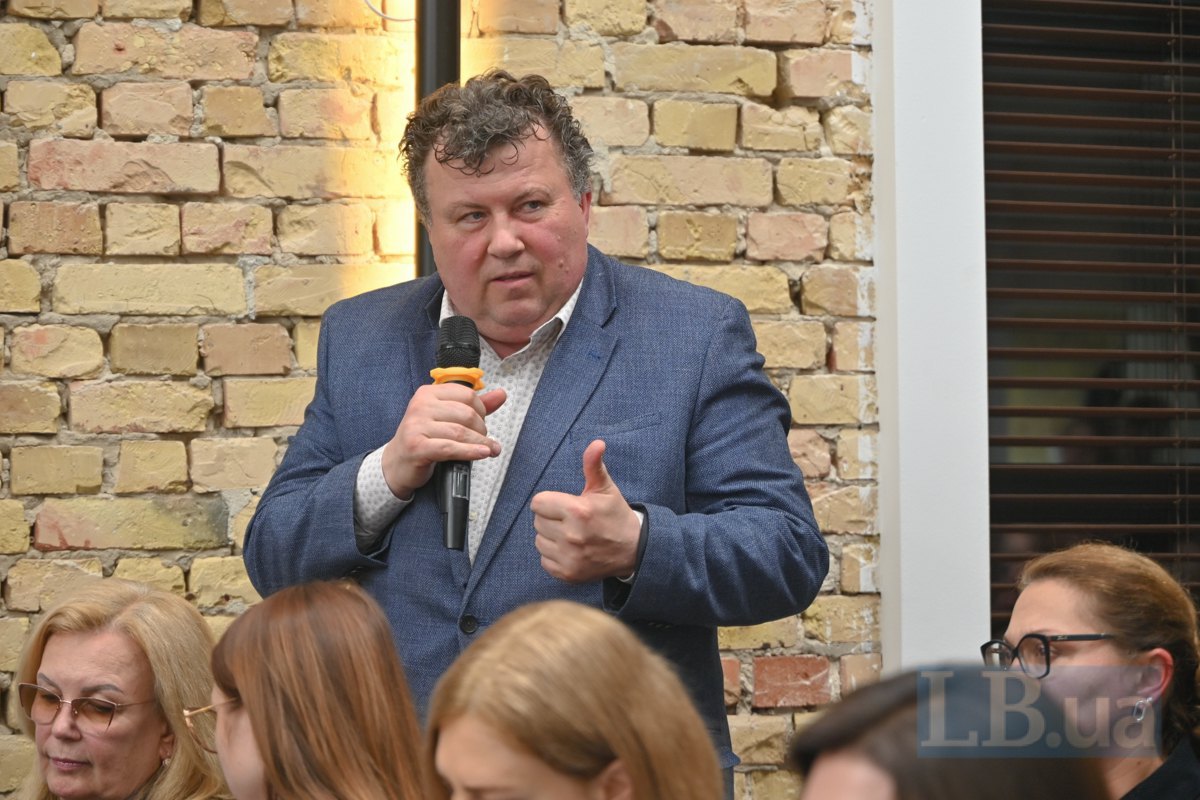
What about Ukrainian science?
"I worked at the National Academy of Sciences for 30 years," says Nana Voytenko, rector of the Dobrobut Academy. "When I arrived there 30 years ago, about 50% of the employees and 50% of the laboratories were working at a very high international level, producing high-quality fundamental research, which was primarily reflected in high-quality publications in international journals.
Now, God willing, if there are 10% of scientists in the institute where I worked. Three laboratories are actually working. Everyone else goes to work, doesn't go to work — nothing changes. Even if the entire institute stopped going to work, nothing would change. And this is still the best-case scenario, because this is the National Academy of Sciences. There is also the Academy of Pedagogical Sciences and the Academy of Medical Sciences. When I was a member of the scientific committee and accepted reports, I want to tell you that there was zero science in those academies of sciences. Did the Academy of Pedagogical Sciences give us any new methods of online teaching during COVID? No, everything has been ruined. The same is true of the Academy of Medical Sciences. We currently have 29 medical training programmes in the country, none of which even come close to the standards in Europe or America. We are still teaching in medical schools as we did 100 years ago.
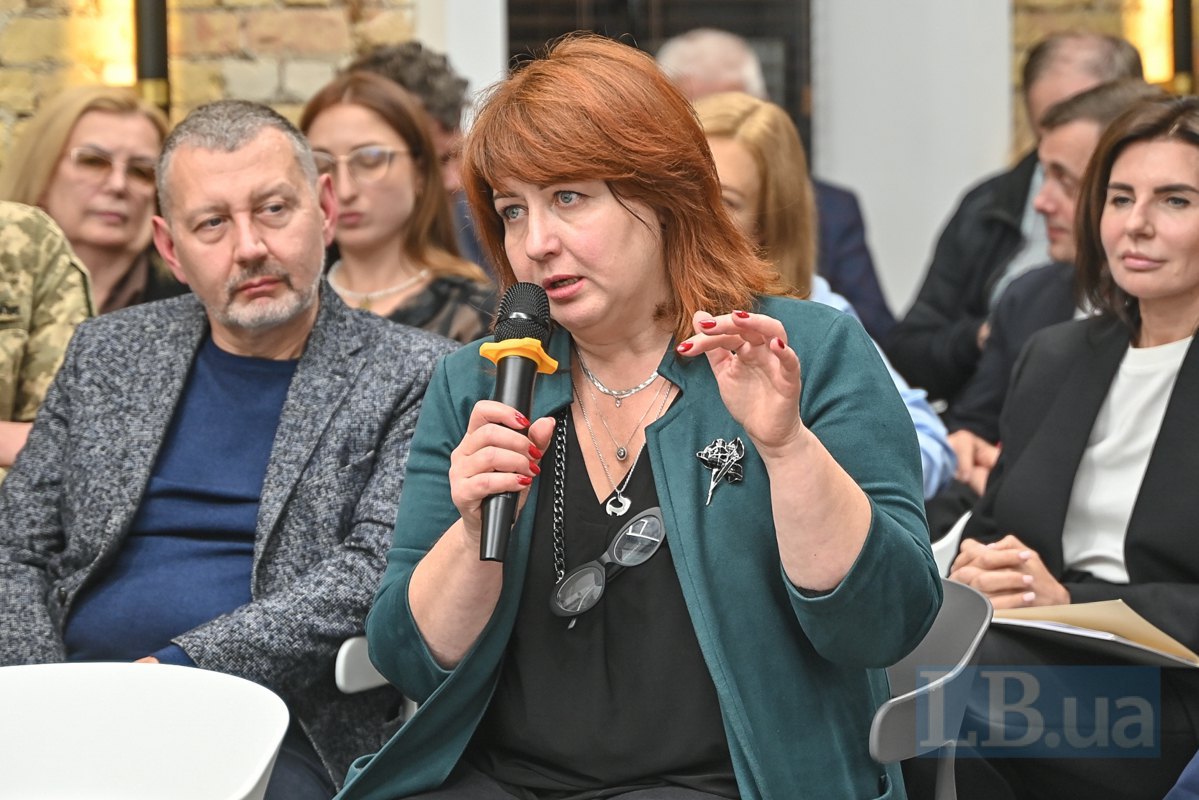
According to Mykhaylo Vinnytskyy, science today takes place in universities, not in academies of sciences.
"Solid fuel for rockets is developed in universities. Evacuation drones are manufactured in universities. They develop and manufacture them. Cybersecurity, guidance systems without GPS, electronic warfare, explosion initiation boards for mining and drones — this is not happening in academies of sciences, it is happening in universities, mainly state ones. And that's good," he said.
According to Minister Oksen Lisovyy, you cannot demand results from academies of sciences without investing in them first. And there is currently no opportunity to invest. The state allocates 11 billion hryvnya to all scientific academies, the minister emphasises. In terms of GDP, this is critically low compared to other countries of the former Soviet bloc. However, at this stage, the Ministry of Education and Science is trying to start by changing the outdated administration system.
"What are we doing? We are dismantling a system that evaluates itself. And the degradation we are talking about was caused, among other things, by the management model. This is because there is no external control factor, no external evaluation criteria.
The tool we have introduced today — state certification — is about who to give money to. We worked on the model for a year, and on the state certification itself for a year. We drained you [the academic community] dry. And what do we have? We have three billion for next year. And for each subsequent year, for five years until the next certification. Three billion hryvnyas. This year, you were given only four million. Let's see what the formula distribution will give next year," said the minister.
He calls such funding targeted — "for results and efficiency." Because the money should be received directly in proportion to the department/laboratory and scientist who produced the results.
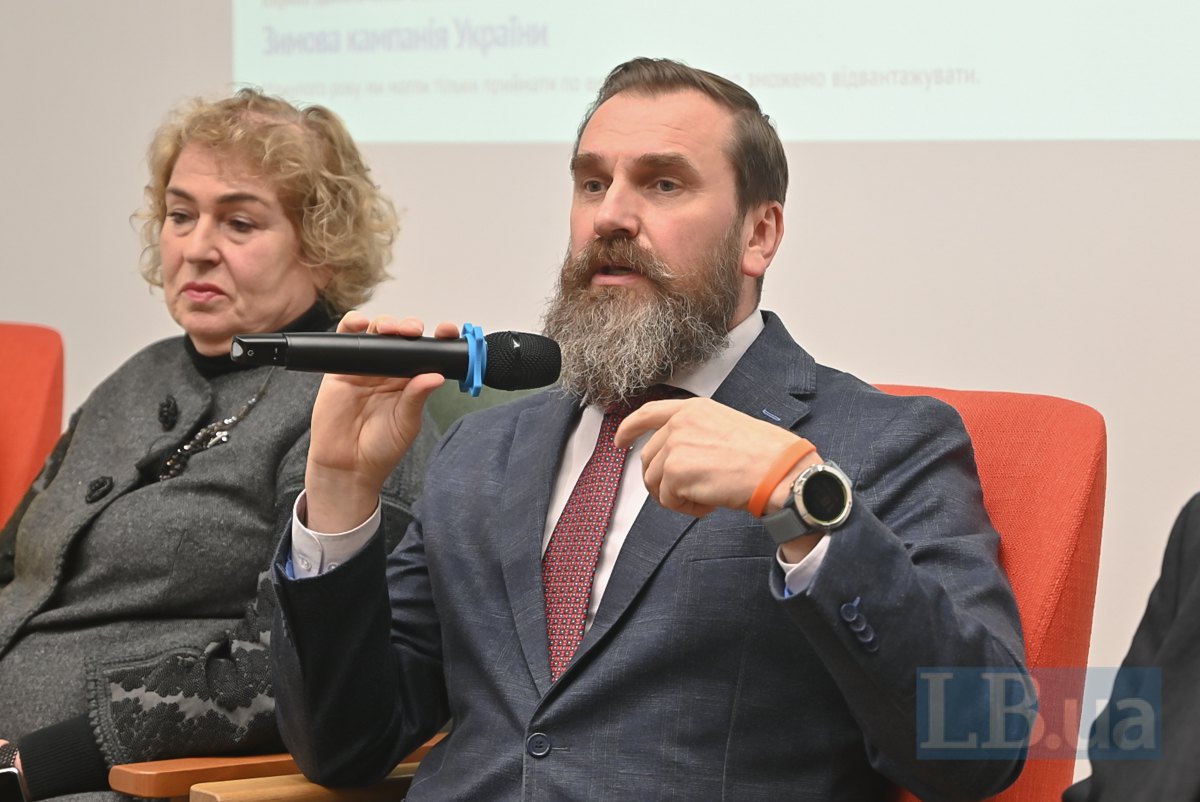
"The formula and criteria used for evaluation have been approved by the Cabinet of Ministers. The expert component accounts for 20%, with the rest being criteria and strict requirements. It is difficult to measure the humanities, social sciences, or fundamental natural sciences using these criteria. However, there is a hard component: how much grant money has been attracted, how many publications there are, and in which quartiles [category of scientific journals] — these are quantitative things that cannot be faked. The rules are transparent, and everyone can see what they need to strive for in order to receive more money," explained Lisovyy.
According to the results of the certification, he notes, 43% of institutions received category A and more funds; category B receives additional funds, but less. The third category remains without additional money and must think about how to improve results and avoid liquidation. The fourth category is not certified, with the corresponding consequences.
According to KSE President Tymofiy Mylovanov, the problem with the Academy of Sciences is that it is taken over by administrators who, in exchange for bribes, dispose of the academy's real estate instead of engaging in science. And such people should be dismissed from the NASU.
